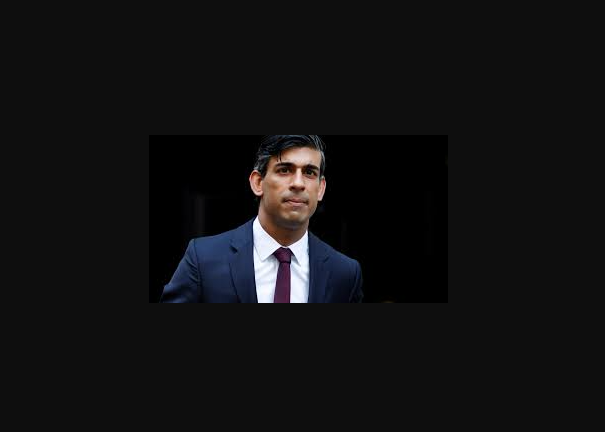Please sir, can I have more?

On the 25th of November 2020 the Chancellor of the Exchequer decided that, in the public sector, there would be no increase at all for many and a real-terms pay-cut for millions more in 2021. People doing jobs such as teaching in classrooms and emptying our bins, people recently defined as essential workers, would have less to live on next year as compared to this year. The question is, why did the Chancellor, Mr Sunak, do that?
Luke Bartholomew, a Senior Economist at pension manager Aberdeen Standard Investments, explained to the BBC, that this was a particularly ‘disappointing’ choice given that it was made in the wake of the news that not one but three vaccines had been found to be successful in their initial trials in the weeks immediately before the Chancellor’s statement. Luke said:
“The exceptionally good news on vaccine development means that we can now start to look beyond the Covid crisis. It seems clear to us that the main problem facing the economy at that point will be one of insufficient demand and rising unemployment. In that context, it is disappointing the chancellor is already looking to prioritise public sector pay restraint. The economy would be much better helped by supporting the spending power of public sector workers. With interest rates exceptionally low, and very likely to stay that way, it is quite simply wildly premature to turn towards deficit reduction measures.”
The size of the pay cut to be suffered by public sector workers will depend on how high inflation rise to during 2021. As the prices of many basic goods are expected to increase when tariffs and other impediments are placed on them, following Brexit, we should not expect inflation to be very low.
The chancellor said that he “could not justify an across-the-board increase when many in the private sector had seen their pay and hours cut in the crisis.” This is an odd line of argument as neither he nor any of his Conservative predecessors ever said, in years when average private sector pay was rising in Britain, that the public sector should also see a commensurate rise!
The chancellor’s argument is also unusual because the conventional conservative argument that would be proffered is that “the country cannot afford this”. However Mr Sunak has been able to afford all kinds of things, including an enormous increase in military spending announced just a few days before the spending review. Even he did not have the gall to claim that affordability was the key issue. He could have chosen to ensure that public sector pay at least rose to be commensurate with inflation if he had wished to; it was just that he did not wish to. But why?

Mr Sunak, Chancellor of the Exchequer
So as not to be disingenuous, it is worth looking at what else the Chancellor gave as a justification, other than his key claim that it was only fair to level down public sector pay if people had been badly hit in the private sector. He said he wanted to protect jobs, with the implication that more jobs could be created, or fewer lost, if most people working in the public sector took a pay cut. However, the Chancellor will know, and as Luke Bartholomew explained on the day of the Spending Review, that if you reduce the average spending power of public sector workers by reducing their pay in real terms, they will spend less in the economy and that reduction in demand for goods and services will reduce the number of jobs overall, especially jobs in the private sector – so preserving jobs cannot be the real reason.
It is possible that the Chancellor is convinced that there will be less to go round in future and he wants to ensure that those working in the public sector consume less: less food of a high quality; less space in the homes they occupy; fewer holidays in future; and so on and on. Cutting public sector pay in real terms will dampen demand in general and there will be fewer jobs in the private sector in future and pay cuts there as well, all resulting in reduced spending on those same quality items. He may think this is all inevitable and reasonable. And he may want to try to pitch private against public in a false argument to turn attention away from the real choices he has made – choices he made before the day of the spending review and choices he will presumably continue to make.
The chancellor decided to spend more on defence just before the spending review. Military spending creates relatively few jobs per pound spent, but can of course create misery is it bolsters arms manufacturers, whose weapons eventually often maim and kill people, and not necessarily by our own armed forces. It may have been because he didn’t want these issues being raised on the day of the spending review that he announced the very large rise in military spending days earlier. Such a deliberate and manipulative separation of issues is common in politics.
In terms of future choices he has to make, the key ones concern taxation. There is a group who are not like most public sector or private sector workers, who could easily afford to pay more in taxation. That group could, for instance, easily pay taxation at the customary European rates for their income levels. Admittedly if that group did pay more in taxation, they would not be able to afford quite as much of the luxuries and extravagance that the rest of us never had, quite as many homes as they currently own, and quite as many holidays a year as they normally took – that group is people with very high incomes, very high wealth, or both: the rich.
The word ‘rich’ does not appear once in the text of the Chancellor’s 2020 spending review statement, nor does the words ‘wealthy’ or ‘redistribution’ or ‘fair’ other than ‘to ensure fairness between the public and private sectors’. The Chancellor’s statement was instead full of paradoxes, for instance promising both “The biggest ever investment in new roads” and “…the greener future we promised.” It included promises to raise the National Living Wage for a full time worker by £345 a year, or just under a pound a day. He did not explain that the wage is still not one you can reasonably live on and hence a misuse of the term ‘Living Wage’. The statement cited lower paid workers five times; because the Chancellor wants to say how much he and his government was doing for the lowest paid. It never mentioned the highest paid.
So, to conclude on the question I began with – why did Mr Sunak do this rather than, say, suggest a small public sector pay rise of 1% and make a point about how generous he thought that was being (even if that too would be a real terms cut)? The only plausible answer to the question this short article began with is that he wanted to provoke discord between people in the private and public sectors, to keep up the pretence that that is the choice he had – to support one or the other – because he wished to distract people from the real choice he has made – to protect the rich. We can get perhaps gain a better sense of his priorities form his actions rather than simply concentrate on his words, For instance, it is now well documented that his largess during the Covid crises had already enriched many of his, and fellow Conservative MPs friends through preferential dubious contracts.
And why would Mr Sunak wish to protect the rich, and why would the Prime minster and cabinet and Conservative party support him in that? I can only conclude that it is because of whom they really represent – themselves and their even richer backers.
A copy of the spending review speech can be found here.
And a study which suggests parallels in the USA is here.
for a pdf for this article and a link to its original publication click here.